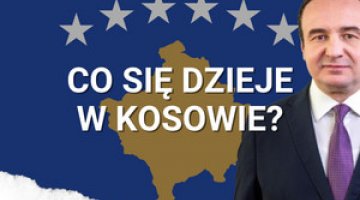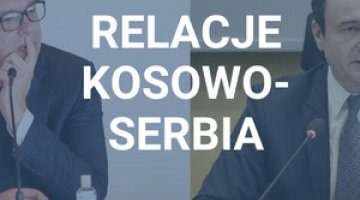Unrest in northern Kosovo
On 29 May, clashes involving soldiers from the NATO peacekeeping mission (KFOR) broke out in the municipality of Zvečan, which is inhabited by the Serb minority. The riots erupted when a group of masked men attempted to enter the municipal office protected by KFOR troops. More than 50 civilians as well as 30 KFOR soldiers (19 Hungarians and 11 Italians) were injured in the incident. Media personnel also suffered injuries. The next day, NATO Secretary General Jens Stoltenberg announced that 700 additional troops would be sent to Kosovo.
Protests in the four Serb-majority municipalities in northern Kosovo have been ongoing since 26 May, when Kosovar authorities took control of municipal office buildings in an attempt to allow the mayors elected in the local elections held in April to take up their positions. The local Serbian population boycotted that vote, which resulted in minimal turnout and the appointment of ethnic Albanians to these posts. After the takeover of the municipal buildings, Serbian state symbols were replaced with Kosovar ones. The Serbs are demanding that the Albanian mayors be withdrawn from these municipalities and that representatives of parallel local authorities, which are supported and financed by Belgrade, be given access to the facilities.
Commentary
- The situation in northern Kosovo remains very tense, and more unrest in the coming days and weeks cannot be ruled out. The Kosovar government is determined to enforce national regulations in the northern municipalities. This has led to a significant escalation of tensions in the absence of trust between the Kosovar government and the Serb minority. Pristina has treated the Serbs with suspicion and accused them of acting in Belgrade’s interests. The government of Kosovo has also resisted pressure from the West to seek alternative solutions to the current crisis. Meanwhile the Serbs, who left Kosovo’s institutions and boycotted the April elections at the urging of the government in Belgrade, are unwilling to cooperate with Pristina. Serbia has been exploiting their frustration (in order to retain its influence in Kosovo), but so have the local political and criminal networks, who have sabotaged any efforts to establish the rule of law on this territory.
- The failure of negotiations between Serbia and Kosovo, which were conducted under the auspices of the European Union (with US support), forms the backdrop to the clashes. Although the EU declared that the talks were successful, in reality there was no agreement on a plan for the comprehensive normalisation of relations between Serbia and Kosovo or, crucially, on a solution to the crisis that saw Kosovo Serbs leave some of the territory’s institutions in November 2022. As a result, for more than six months, the four Serb-majority municipalities have been without local authorities under the Kosovar system and without representatives of the Serb minority in the police and prosecutor’s offices. The government in Pristina failed to convince the local population to participate in the elections (they had been postponed on one occasion due to protests); the Serb boycott of these elections was aimed at forcing the Kosovar government to back down from its attempts to strengthen its control over the Serb-majority northern municipalities. However, the government has decided to take advantage of the situation, and has significantly increased the police presence in this area in order to enforce Kosovar regulations with the support of law enforcement agencies. Previously, it had been virtually impossible to exercise control over these municipalities, as a result of which organised crime in the area went unpunished.
- In the current situation, the outbreak of unrest in Kosovo is benefitting the government in Belgrade, which has been struggling with the biggest wave of social discontent since 2000, triggered by its passive response to the mass shootings in schools that took place in early May (see ‘Serbia: mass protests in the shadow of tragedies’). The incidents in Kosovo are a useful distraction from these problems and the government will exploit them to discourage people from participating in protests. The risk that the situation in Kosovo will destabilise is also likely to translate into greater support from Western partners for Serbian President Aleksandar Vučić.
- Both the US and EU countries have been calling on the Serbs and the Kosovar government to de-escalate tensions. Washington appears to be leaning strongly towards the Serbian point of view, as it has demanded that Pristina make concessions and pull the Kosovar forces out of the Serb-majority municipalities in the north of the country. The US ambassador to Pristina, Jeff Hovenier, has already announced that Kosovo will be excluded from the Defender 23 military exercise, and that the US will not support its efforts to gain membership in international organisations as the Kosovar government has ignored suggestions aimed at easing tensions. However, a Western policy that involves the enforcement of short-term stability through concessions is part of the problem. Making ad hoc arrangement without becoming actively involved in efforts to work out a comprehensive agreement between the parties – or at least to resolve the issue of the Serbs’ return to Kosovo’s institutions – will only exacerbate the conflict, and encourages the main actors to take unilateral steps.




